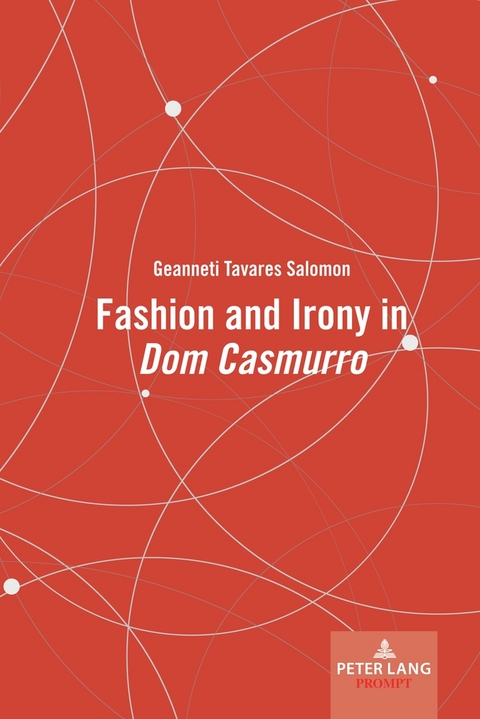
Fashion and Irony in «Dom Casmurro»
Seiten
2021
|
New edition
Peter Lang International Academic Publishers (Verlag)
978-1-78997-972-5 (ISBN)
Peter Lang International Academic Publishers (Verlag)
978-1-78997-972-5 (ISBN)
This study brings us closer to understanding the relationship between fashion and literature. In Machado de Assis’ Dom Casmurro, fashion serves as a literary strategy that supports the ironic approach of the book. This book gives insight into Brazilian society in transition at the end of the nineteenth century.
This study brings us closer to understanding the relationship between fashion and literature. The book focuses on how the irony present in Machado de Assis’ Dom Casmurro is also evident in the fashion portrayed in the novel. It reveals that fashion can be seen from Machado’s perspective as a literary strategy while also participating in the construction of the characters in the plot of the narrative.
In the first appearance of the protagonist of Dom Casmurro, Capitu has simple ‘cloth shoes’ sewn by herself. In this little description by Machado, a whole world is hidden, in the same way that in each garment, costumes and props of the characters hide literary games – the games of light, shadow and irony that can be seen in the novel.
Through the descriptions of the garments, it is possible to perceive the first steps towards global capitalist expansion at the end of the nineteenth century, when consumer society was still forming. This book gives insight into Brazilian society in transition at the end of the nineteenth century, as observed by Machado de Assis.
This study brings us closer to understanding the relationship between fashion and literature. The book focuses on how the irony present in Machado de Assis’ Dom Casmurro is also evident in the fashion portrayed in the novel. It reveals that fashion can be seen from Machado’s perspective as a literary strategy while also participating in the construction of the characters in the plot of the narrative.
In the first appearance of the protagonist of Dom Casmurro, Capitu has simple ‘cloth shoes’ sewn by herself. In this little description by Machado, a whole world is hidden, in the same way that in each garment, costumes and props of the characters hide literary games – the games of light, shadow and irony that can be seen in the novel.
Through the descriptions of the garments, it is possible to perceive the first steps towards global capitalist expansion at the end of the nineteenth century, when consumer society was still forming. This book gives insight into Brazilian society in transition at the end of the nineteenth century, as observed by Machado de Assis.
Geanneti Tavares Salomon teaches fashion, art and design at Una University Centre in Belo Horizonte/Brazil. She holds a PhD in Literary Studies from Federal University of Minas Gerais/Brazil and has published previously on fashion and literature: Moda e ironia em Dom Casmurro (2010), A história na moda, a moda na história (chapter, 2019), Dossier Revista d’Obras A moda na literatura e a literatura na moda (editor, 2020). She also has experience as a fashion designer, costume designer and stylist.
CONTENTS: Fashion and Literature – Society and Fashion in the Nineteenth Century: The Ironic Game in Dom Casmurro – Machado de Assis and Dom Casmurro – Final Considerations.
| Erscheinungsdatum | 08.02.2021 |
|---|---|
| Zusatzinfo | 14 Illustrations |
| Verlagsort | Oxford |
| Sprache | englisch |
| Maße | 152 x 229 mm |
| Gewicht | 360 g |
| Themenwelt | Geisteswissenschaften ► Geschichte |
| Geisteswissenschaften ► Sprach- / Literaturwissenschaft ► Anglistik / Amerikanistik | |
| Geisteswissenschaften ► Sprach- / Literaturwissenschaft ► Literaturwissenschaft | |
| Geisteswissenschaften ► Sprach- / Literaturwissenschaft ► Romanistik | |
| Sozialwissenschaften ► Soziologie | |
| ISBN-10 | 1-78997-972-2 / 1789979722 |
| ISBN-13 | 978-1-78997-972-5 / 9781789979725 |
| Zustand | Neuware |
| Haben Sie eine Frage zum Produkt? |
Mehr entdecken
aus dem Bereich
aus dem Bereich
Poetik eines sozialen Urteils
Buch | Hardcover (2023)
De Gruyter (Verlag)
CHF 83,90
Buch | Softcover (2024)
belleville (Verlag)
CHF 27,95


